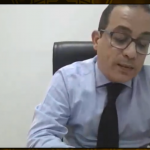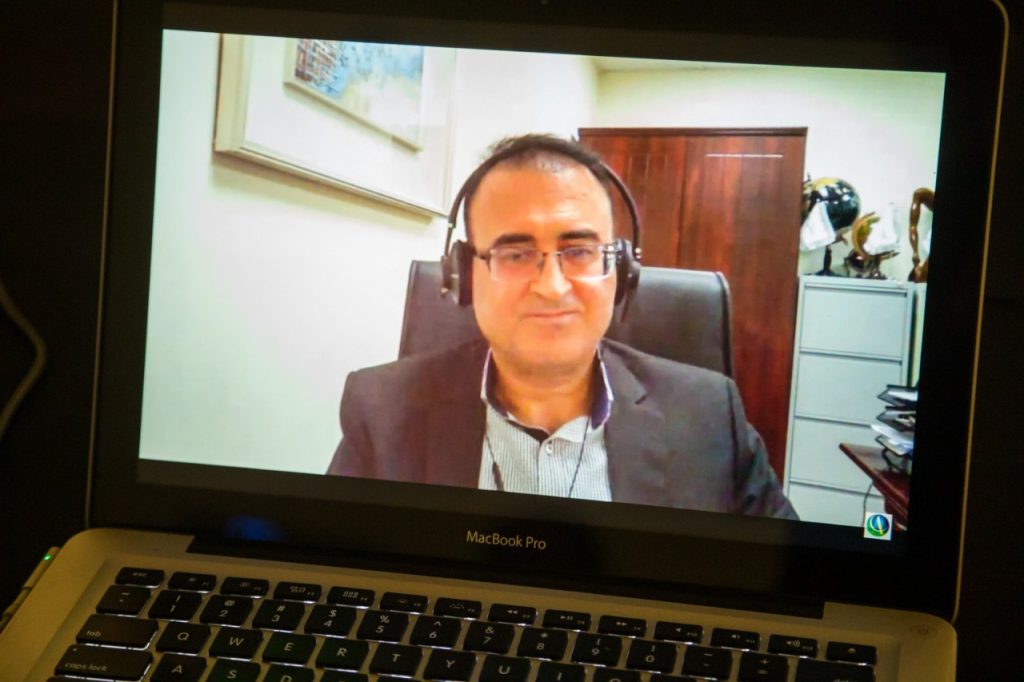São Paulo – While travel costs used to make foreign relations more difficult, new agreements and deals are now taking place online. Lecturers on the second day of the Economic Forum Brazil & Arab Countries discussed the competitive advantages of the post-pandemic world and how urgent it is to adopt the concepts of the Fourth Industrial Revolution, or Industry 4.0.

“This online forum is a good example to show how digital relations are stronger in the last few months,” Orient Planet director-general Nidal Abou Zaki said from his office in the United Arab Emirates. “We have new rules in place, new laws. Previously we had to sign the same page of a contract. Now we sign it remotely. The world has changed.”
The secretary-general of the Union of Arab Chambers and moderator at the panel “A New Order in International Business,” Khaled Hanafy from Egypt observed that the changes from the last five years have further accelerated during the pandemic. “In 1995, we started talking about globalization and internet,” Hanafy said. “Now we are witnessing the Industry 4.0, a concept first introduced by economist Klaus Schwab in his book The Fourth Industrial Revolution from 2016. But everything will be much faster.”

C4IR Brasil (Center for the Forth Industrial Revolution) executive director Lucas Câmara pointed out that the pandemic has made it even more urgent for countries to regulate emerging technologies that are the pillars of the Industry 4.0, including Internet of things, artificial intelligence, robotics, and 3D printing.
According to Câmara, the main point is the need for collaboration between the countries. “Just as the virus doesn’t see geographic barriers, the technologies – particularly the data – flow freely between the countries,” he said. “We must leave the individualism aside, find new success metrics besides the GDP and build confidence between the people so that the technologies can properly get in the society.”

InovaHouse3D founder Juliana Martineli of Brazil said that the technology of her company, which developed Latin America’s first concrete 3D printer for civil construction, aims at collaborating with other countries. “Our mission is putting this technology out into the world,” she said. “We are open to share our technology and expertise in materials and machinery.”
The pandemic has brought countries closer together and fast-tracked the adoption of digital tools. Export Autonomous Establishment of Exports Control and Coordination (EACCE) secretary-general Najeeb Al-Azouzi pointed out that the economy in his country, Morocco, was also unexpectedly affected by COVID-19. “To keep doing business, we streamlined the digital program to perform inspection in food products and took agricultural trade shows to the virtual environment,” he said.

After all, event and leisure tourism were some of the most impacted markets. “How will the traveler’s behavior change in the short to medium term?” CrescentRating CEO and founder Fazal Bahardeen from Singapore wondered. One priority now is providing security. According to the executive, the recovered will be divided into four phases: domestic tourism, “travel bubbles” – partnerships between neighboring countries with low infection levels – regional tourism, and only then international tourism.

The talks of all participants in the panel showed how the pandemic has accelerated the paradigm shift that this new revolution imposes on business and how people interact, produce, purchase and learn. “We are very confident that the pandemic will pass,” C4IR Brasil executive director said. “But the fourth industrial revolution will not pass.”
Hosted by the Arab Brazilian Chamber of Commerce in partnership with the Union of Arab Chambers and the Arab League, the online event started on Monday (19) and runs until Thursday (22). Journalist and TV anchor Renata Maron is the forum’s host. In addition to the panels, there is a virtual exhibition where Brazilian and Arab companies showcase their products and services.
Check out the full coverage on ANBA.
*Special report by Camila Balthazar for ANBA.
Translated by Guilherme Miranda




